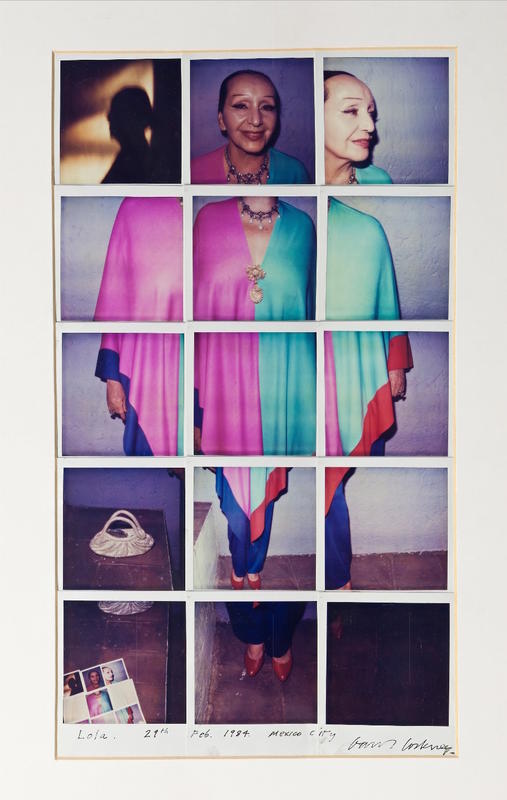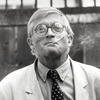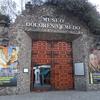More about Portrait of Dolores Olmedo

Contributor
Dolores Olmedo, Lola to her friends, was a larger than life kind of person.
You know the type: three times divorced, says offensive things, successful, self-absorbed, and confirmed “not a communist.” David Hockney needed all of those Polaroid frames to communicate what it felt like to be in the same room as Lola. Another good way to get a sense of what she was like is to note that this portrait is hanging in her former home, now a museum which she modestly named after herself.
It’s pretty understandable that Lola was into herself. She was one of the first Mexican women to succeed in the still-macho world of real estate development. In her own words she, “did whatever she felt like doing, and luckily succeeded at it.” But any story that has to do with Lola’s legacy has to begin with Diego Rivera, who scouted her at the ripe age of 17 and made drawings of her. (Nude, obviously.) She and Rivera had a long relationship, and she housed and helped care for the artist at the end of his life.
Lola was outspoken about her dislike of Frida Kahlo, she says they just didn’t get along because Frida was bi while Lola was straight (which, homophobia) but probably it was also jealousy that Kahlo was the most important woman in Rivera’s life. She also called Kahlo’s work “trashy” while unequivocally defending Rivera’s. Lola’s not-subtle biases helped fuel a controversy when she closed the Frida Kahlo Museum for two years of renovations, and similarly delayed the opening of her own museum which features a trove of Rivera’s work. Being the savvy business woman that she was, Lola didn’t try too hard to dispel the controversy and it helped bring her more notoriety.
Rivera’s daughter Guadalupe Rivera Marin is quoted saying that “everyone in Mexico is afraid of [Lola].” Hockney’s Polaroid portrait of her doesn’t do much to contradict that statement. In the portrait, she’s everywhere, a shadow on the wall, two-faced, brightly colored, smiling but not really looking at you.
Sources
- “Dolores Olmedo.” The Telegraph. August 8, 2002. Accessed September 25, 2018. https://www.telegraph.co.uk/news/obituaries/1403820/Dolores-Olmedo.html
- Golden, Tim. “Dispute Over the Kahlo and Rivera Legacy.” New York Times, April 14, 1993. Accessed September 25, 2018. https://www.nytimes.com/1993/04/14/arts/dispute-over-the-kahlo-and-rive…
- Kandell, Jonothan. “Dolores Olmedo, a Patron to Diego Rivera, Dies at 88.” New York Times, August 2, 2002. Accessed September 25, 2018. https://www.nytimes.com/2002/08/02/arts/dolores-olmedo-a-patron-to-dieg…











